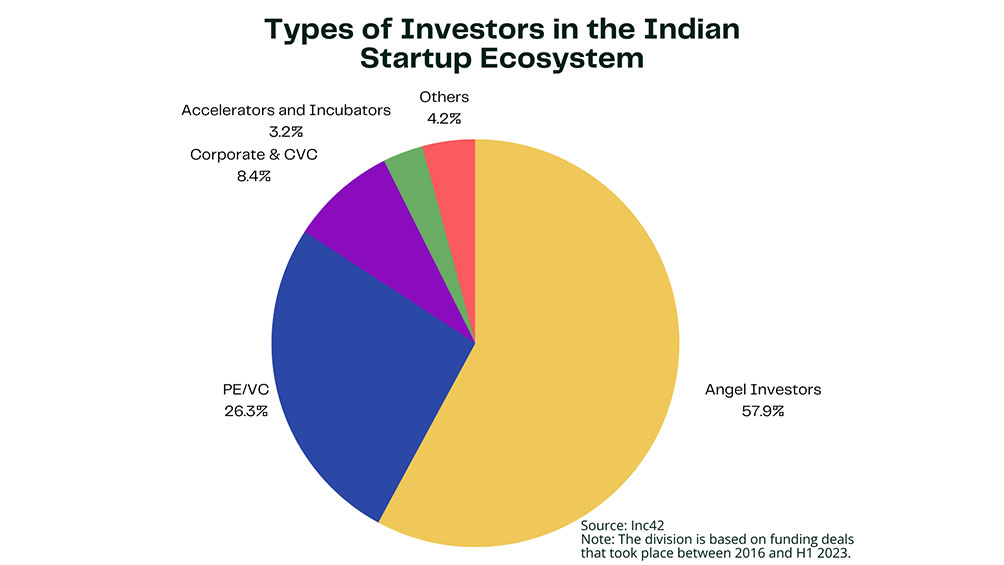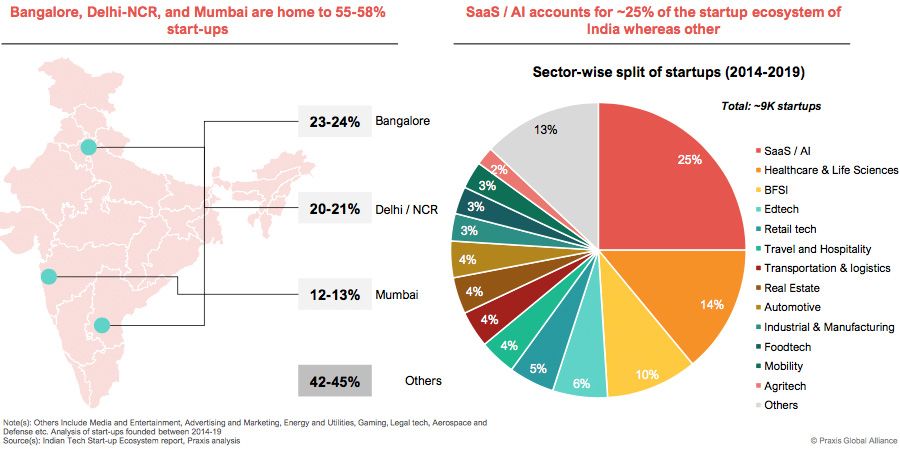In the fast-evolving landscape of Indian entrepreneurship, networks and mentorship are emerging as vital levers that separate thriving ventures from those that simply fade. With India now recognised as the world’s third-largest startup ecosystem, having over 157,000 recognised startups under Startup India, the question is not just about access to funding — it’s about access to people, experience and relationships.
Table of Contents
The Positive Force of Mentorship and Networking
Entrepreneurs often focus on product, market, investment — but what often gets under-emphasised is the human dimension: the value of having someone who has been there, who knows the terrain, and who can open doors. Multiple studies show that mentorship adds strategic guidance, emotional support and networking opportunities.
For instance:
- Structured portals like the “MAARG” platform under Startup India explicitly list mentorship and networking as core resources for scaling ventures.
- A report by KPMG India underscores how incubators and accelerators provide not only capital and infrastructure but “access to mentorship, funding and networking opportunities tailored to startups and early-stage companies.”
Here is a visual illustration of the Indian startup ecosystem’s scale:





Among the tangible benefits:
- Faster market-readiness: With a mentor guiding midpoint decisions, early pivots become possible earlier.
- Access to networks: A mentor can introduce a founder to investors, customers, industry insiders who otherwise remain out-of-reach.
- Reduced isolation: The startup journey is lonely; mentoring provides psychological and operational support.
- Local nuance & cultural intelligence: India’s market demands understanding of local culture, regulations, regional investors — networks help navigate that. (As KPMG notes: “Networking and building relationships are crucial … Local networks play a vital role in navigating cultural nuances and understanding market dynamics.”)
The Risk of Neglecting Networking and Mentorship
Despite the clear benefits, many founders still skip the relationship-building leg of the journey, focusing purely on the business model or technology. That neglect carries risks:
- Going solo without feedback: Without external guiding voices, founders may persist in flawed approaches.
- Missed investor or partner introductions: Without someone to vouch or connect, crucial deals may slip.
- Lack of ecosystem integration: In an ecosystem with multiple players (incubators, accelerators, investors), being disconnected means you miss out on shared learning.
- Over-emphasis on capital rather than capability: Funding is important, but without mentorship and network, scaling becomes harder.
In India especially, where local market dynamics, shifting regulations, regional diversity and emergent competition co-exist, the absence of mentors and networks can amplify risk. As one article put it: “From providing mentorship to giving networking advantages, they can help build a startup scene from the ground up.”
What the Indian Startup Ecosystem Shows
A few recent data points:
- India has more than 157,000 recognised startups under the Startup India scheme.
- While funding remains strong, it is not uniform and the earlier-stage ventures especially benefit from non-monetary support (mentors, networks) to survive and grow.
- Government platforms now embed mentorship and networking as core components (for example MAARG portal).
Table 1: Comparison of Outcomes with/without Mentorship & Networking
| Feature | With Mentorship & Networking | With Minimal Mentorship/Networking |
|---|---|---|
| Time-to-market or scaling | Faster iteration, earlier access to key partners | Slower market feedback loops, fewer introductions |
| Access to capital/partners | Higher probability of being introduced and accepted | Reliant solely on cold outreach or personal network only |
| Founder resilience | Mentor feedback reduces blind spots | Higher risk of isolation, re-making already seen mistakes |
| Ecosystem visibility | Better recognised, invited into peer groups | Lower ecosystem integration, missed events/insights |
| Market-local adaptation | Mentor guides on local/regional nuances | Greater risk of mis-fit or missing cultural cues |
How Founders in India Can Strengthen Their Networks & Mentorship
Here are actionable tips:
- Use mechanised portals: Register on mentoring platforms such as MAARG under Startup India.
- Join incubators/accelerators: These often come with built-in mentorship, peer networks and investor linkages.
- Leverage events and meet-ups: Founder forums, industry conferences, vertical-specific gatherings help break out of isolation.
- Be selective about mentoring relationships: Choose mentors who align with your stage and challenges — early stage founders need different types of advice than scaling founders. As one article notes: “Entrepreneurs at the start-up phase… want a mentor who can provide networking support and help them in decision making.”
- Give back and stay connected: Networking works best when there is reciprocity — stay visible, maintain relationships even after immediate needs are met.
- Build a network, not just a mentor: One mentor is helpful, but a web of contacts (peers, industry advisors, investors) is more resilient in the longer term.
The Bottom Line
In the Indian startup ecosystem, the raw idea and funding are necessary, but not sufficient. The secret multiplier is often the connection — to experienced minds, to relevant networks, to ecosystem players who can push you ahead. Neglecting this dimension isn’t just a missed opportunity: it can increase risk. By focusing intentionally on mentorship and networking, founders can unlock a stronger trajectory — and in a competitive, dynamic, and large-scale market like India, that differential can make all the difference.
for more follow : (25) Post | Feed | LinkedIn
Last Updated on: Thursday, October 23, 2025 9:14 pm by Republic Business Team | Published by: Republic Business Team on Thursday, October 23, 2025 9:14 pm | News Categories: News